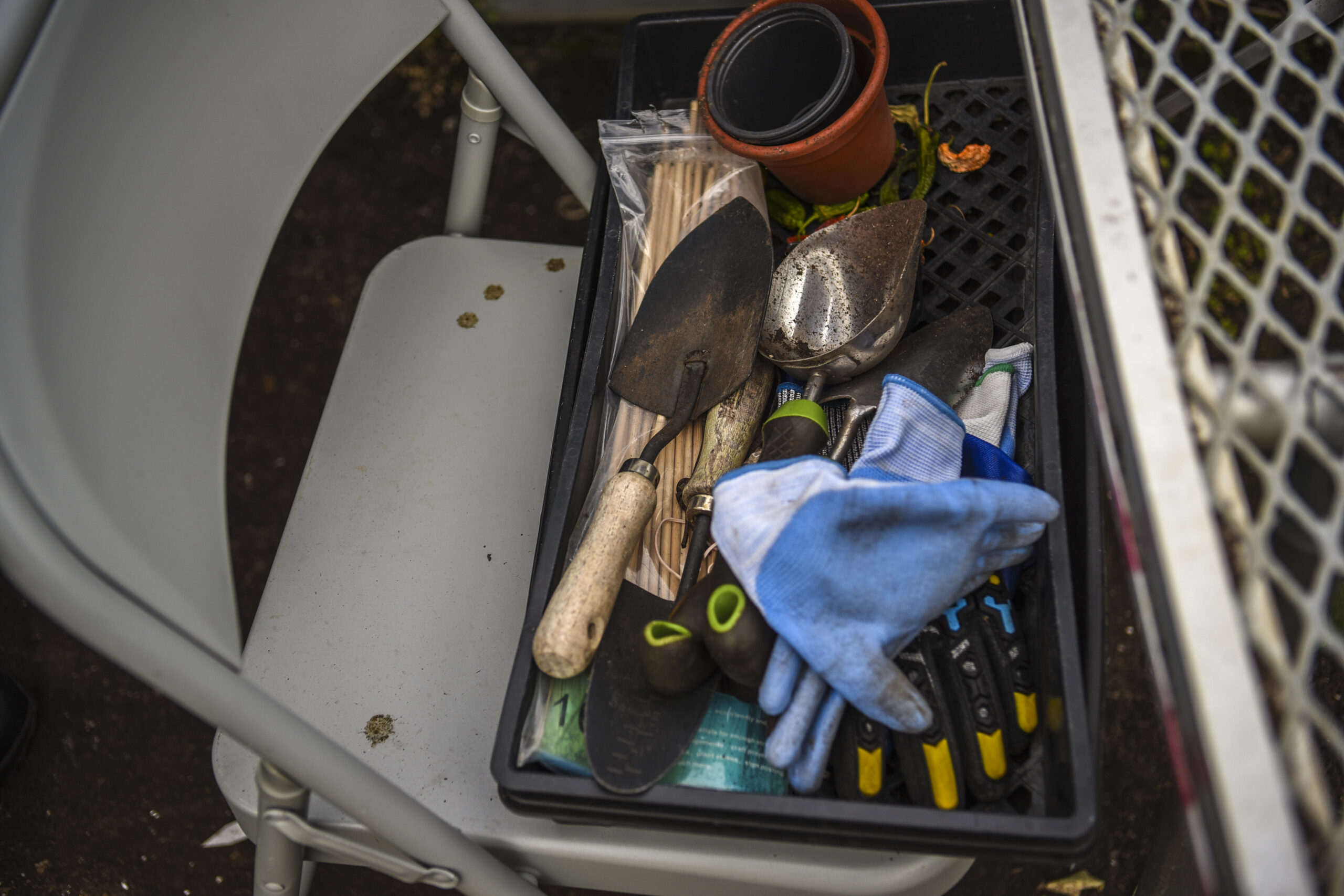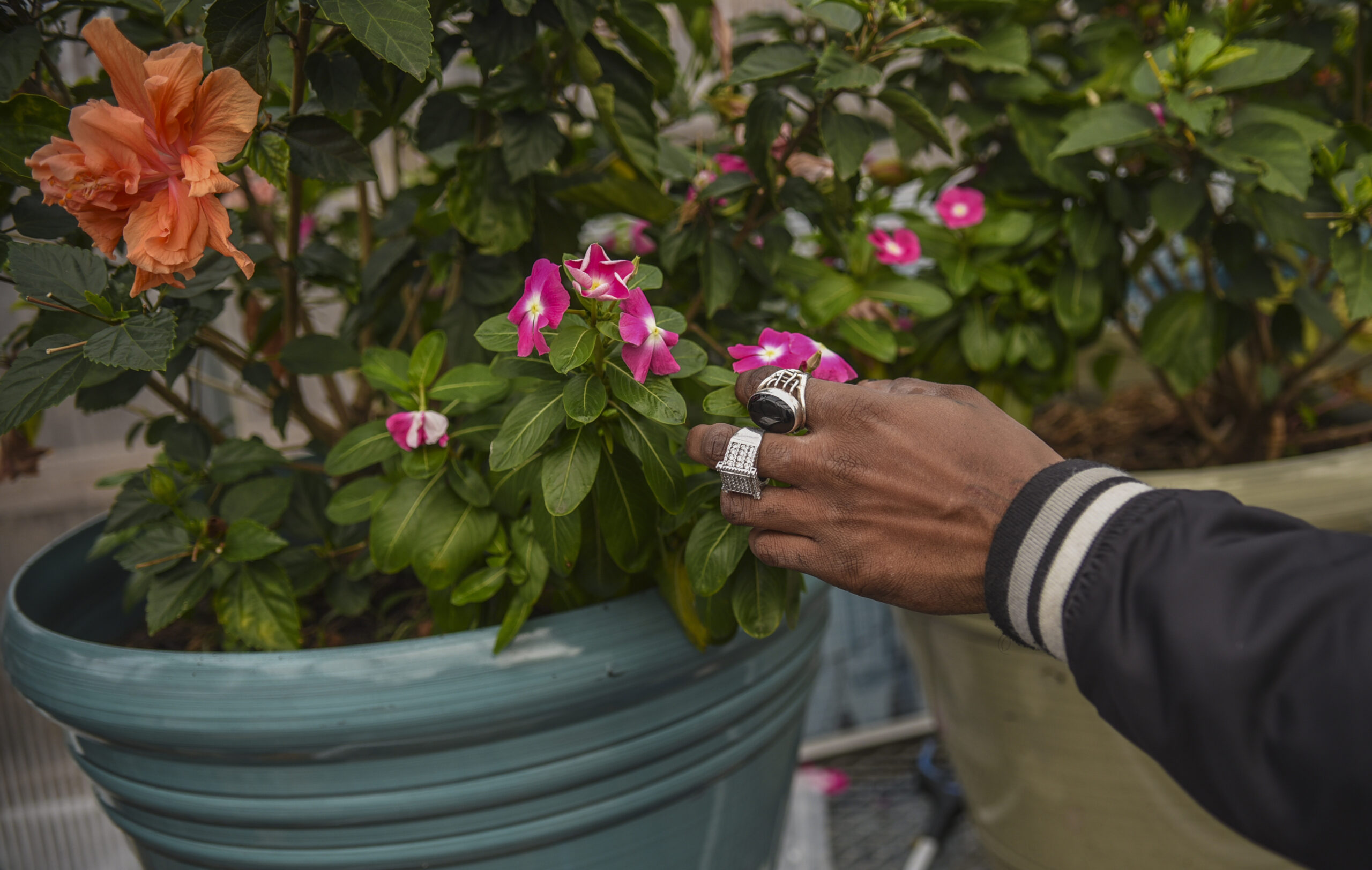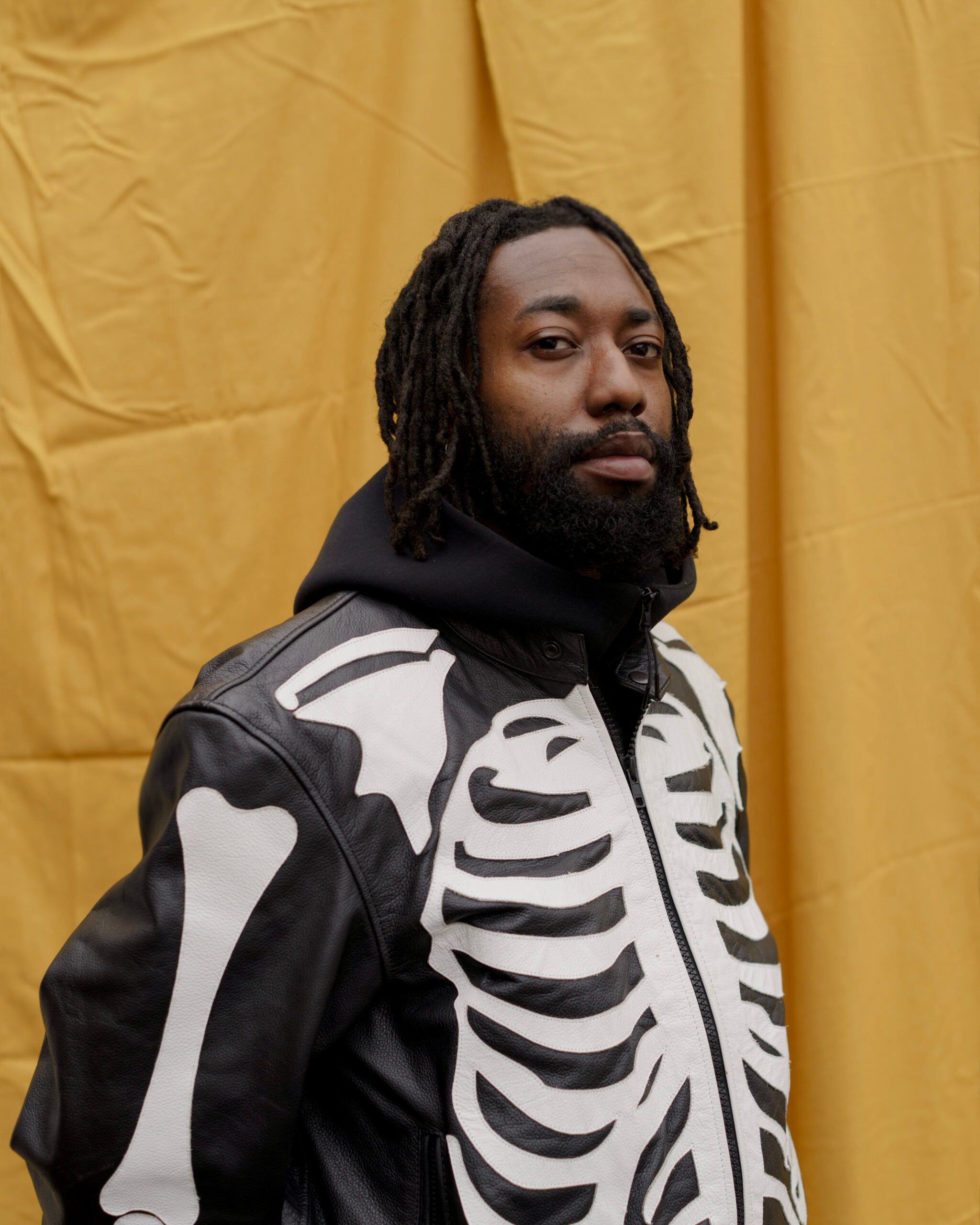I always knew I would get shot. It wasn’t a question of if, but when.
I was born and raised on the South Side of Chicago in West Chatham and in Woodlawn. I became involved with a street tribe at a young age. The block we lived on and who my friends and family were determined my affiliation. I witnessed the kind of things you might see in a movie: drug trafficking, gambling, shoot-outs, fights. I was deeply entrenched in the heart of conflict, destruction, and mayhem. Because of that, I’ve suffered a lot of loss and grief — and gained a well-rounded understanding of why people shoot.
Things started to change for me in 2009. After one of my neighborhood friends was killed, my mom decided to relocate my sister and me to Rogers Park. Being in a different neighborhood on the opposite side of Chicago exposed me to better opportunities and possibilities. I started working summer jobs and became involved with community organizing. But I always seemed to find my way back to the hood. I started to feel like I was living two separate lives. I’d spend my time in Roger’s Park working or doing community work only to head back to the block in Woodlawn. Life was pulling me between gang banging and community activism.
Then on August 15, 2015, my two worlds collided. It seemed like an ordinary day, but for some reason, I felt very paranoid. I received a call from one of the homies asking me to keep a peace circle with some members of our street tribe. There was a lot of infighting. He knew I was leading peace circles to squash conflicts on the North Side and asked me to help.
On my way to 61st and Kimbark, I took the scenic route to avoid running into the opposing side. When I arrived, we were all hanging on the street like we normally did. I observed a car passing by with two guys who appeared to be staring at us. Soon after, the same car drove past again. That’s when I heard the loud explosions and saw sparks flying.
My ears rang as I tried to move out of the way of the gunfire that rained upon us. I felt a sharp burning sensation in my right hand and wrist. When I stopped to check on myself, I noticed a hole in my shirt near my lower abdomen. I immediately sat down. My friends rushed to me in a panic and called an ambulance. I remember being in pain and feeling anxious that I wouldn’t get to the hospital in time, knowing the long journey would be long because the South Side didn’t have a trauma center.
Family, friends, and my activist community all came to visit me in the hospital. While I felt like my life had always been characterized by chaos, their presence made me realize I was also surrounded by a lot of love. Getting shot made me witness how valuable I am to a lot of people.



I spent the next six months recovering at my uncle’s house. The bullet that entered my stomach damaged my kidneys, colon, and intestines. I could no longer use the restroom on my own, which meant I had to wear a colostomy bag. That was extremely humbling. I didn’t want to eat much or really be around people.
While I was embarrassed by my physical condition, my recovery also gave me the chance to sit and reflect on my life for the first time. I realized that I could’ve been dead. I became grateful to be alive and have the opportunity to improve not only my life but the lives of the people around me. Strangely enough, getting shot put me in a position to be stronger and wiser. I began to think about people in my community who were constantly in a state of mourning — for the loss of loved ones or for themselves. And I didn’t want that for myself.
That moment of reflection also helped me see that gun violence is a much more complex issue than how it’s usually portrayed. People not having what they need, not being able to access different pathways to healing, or an overall purpose in life, often leads them to situations where they feel like they need to pick up a gun. I believe that people don’t want to kill other people but do so mostly out of fear. I understood why the person who shot me was hunting me and my friends — it came with the world we were a part of. Getting shot made sense to me. But it made more sense to me to walk away from all of that.
So I left the streets and threw myself into my community work even more. I wanted to do my part in helping to stop the cycles of violence I was once a part of. I now run a group called Stick Talk that works with youth who are incarcerated at the Illinois Department of Juvenile Justice. Working with them showed me that we need to approach gun violence more empathetically. Listening to their stories, I realize how many of the young people in Chicago are products of their environment. Some of the young men I work with had their first gun placed in their hands by their own parents.
When I was shot, my friends and family were angry and wanted retribution. I instead chose to focus on the fact that I still had my life and could help stop the violence in my community. It took a lot of life experience to understand that punishment and revenge aren’t the solution. I didn’t want the guys who shot me to go to prison because I know prisons are just a cage meant to punish people, not rehabilitate them. I often ask people to think about what if someone you loved made a mistake? Would you want society to handle them with care and grace or with punishment and violence? Would you want them to have the chance at rehabilitation or be thrown away forever?

